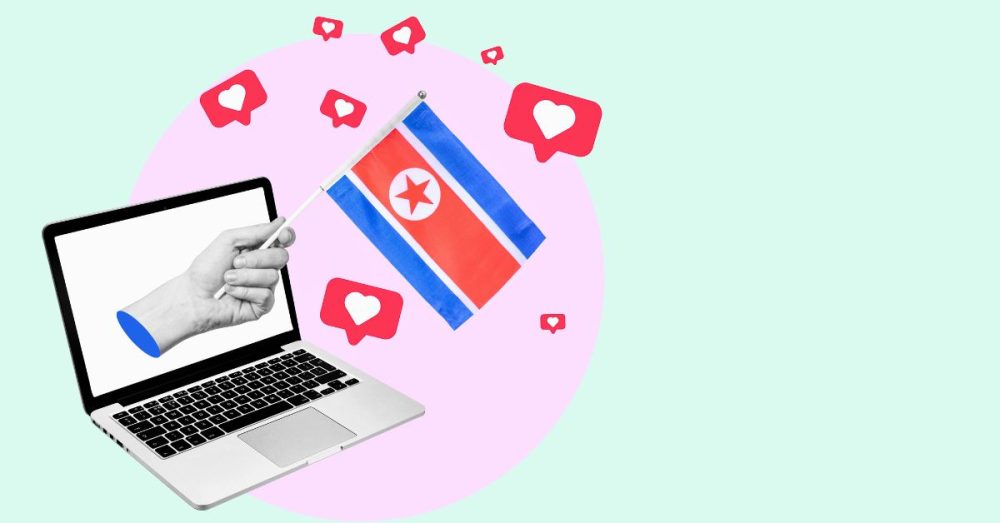North Korea has adopted a new strategy for engaging with global audiences, utilizing a generation of young ‘vloggers’ to spread propaganda.
In the heart of North Korea, a seemingly ordinary scene unfolds on YouTube. A young North Korean girl named “YuMi” seems to be enjoying ice cream. Her cheerful demeanor and fluent English paint a picture of an accessible, almost carefree life in Pyongyang, the capital of one of the world’s most closed-off and hungry nations.
YuMi’s videos, alongside those of another young YouTuber known as Song A, who discusses her love for “Harry Potter” from within the confines of North Korea, have garnered thousands of views, drawing curiosity and skepticism alike.
These new YouTube channels, which claim to offer glimpses into everyday North Korean life, have sparked debate over their authenticity, especially considering the country’s history with internet freedom and rampant propaganda.
“They are exploiting the social media environment where it is increasingly difficult to ascertain what is real and what is not,” said U.S. national security lawyer and President of Scarab Rising Inc., Irina Tsukerman.
Case in point, in 2021, a joint report from the Food and Agriculture Organization and the World Food Programme disclosed that 10.9 million people in North Korea, or 42.4% of the population, were recently impacted by food insecurity, per Aljazeera.
As such, experts caution that behind the seemingly mundane activities depicted in these videos lies a meticulously crafted narrative, per CNN.
Park Seong-cheol, a researcher for the Database Centre for North Korean Human Rights, suggested to CNN that these YouTubers are likely connected to the regime’s elite circles, portraying a lifestyle far removed from the stark reality faced by most North Koreans.
“Connecting with the outside world is an impossible thing for a resident,” Ha Seung-hee, a research professor of North Korean studies at Dongguk University, told CNN.
The glossy portrayals in YuMi and Song A’s videos feature visits to amusement parks and modern gyms. Yet, Park noted that such luxuries are typically reserved for a privileged few and do not reflect the broader population’s daily struggles with power shortages and various economic problems.
These YouTube channels, which often use English names and target global audiences, may reflect a shift in North Korea’s propaganda strategy. This shift could be indicative of North Korea’s new willingness to accept and utilize more Western ideologies to promote its propaganda.
While traditional methods, such as North Korean state-run news channels, have faced scrutiny and removal from platforms like YouTube, the emergence of seemingly personal vlogs presents a new, more relatable facade to the world. This emergence presents a difficult obstacle for social media companies to monitor in terms of privacy and security.
In a statement provided to CNN from YouTube, the media giant asserted, “(YouTube) complies with all applicable sanctions and trade compliance laws, including with respect to content created and uploaded by restricted entities. If we find that an account violates our Terms of Service or Community Guidelines, we disable it.”
However, many critics assert that these channels are being controlled by the North Korean government.
Business Insider reported that multiple international observers and Seoul-based North Korea analysis firm NK News believe these YouTubers are involved in a broader social media initiative authorized by the government.
Additionally, social media is reportedly a cost-effective way for a country to spread its ideologies without further draining its funds.
“It is a relatively inexpensive way to infiltrate assorted social media groups, which plays to DPRK’s budgetary concerns, while bringing North Korea in line with one aspect of contemporary information warfare… (This) method elevates North Korea to the status of a global information warfare player – and giving it a major public presence, moving North Korea out of the realm of ‘Hermit Kingdom,” added Tsukerman.
As highlighted in a 2022 report by Human Rights Watch, North Korea continues to be recognized as one of the world’s most oppressive nations. The North Korean government systematically suppresses pluralism by outlawing free expression, assembly, and freedom of religious beliefs.
Additionally, dissent in North Korea is met with severe consequences, including confinement in secretive prison camps where inmates endure torture, starvation, and forced labor, per Human Rights Watch.


